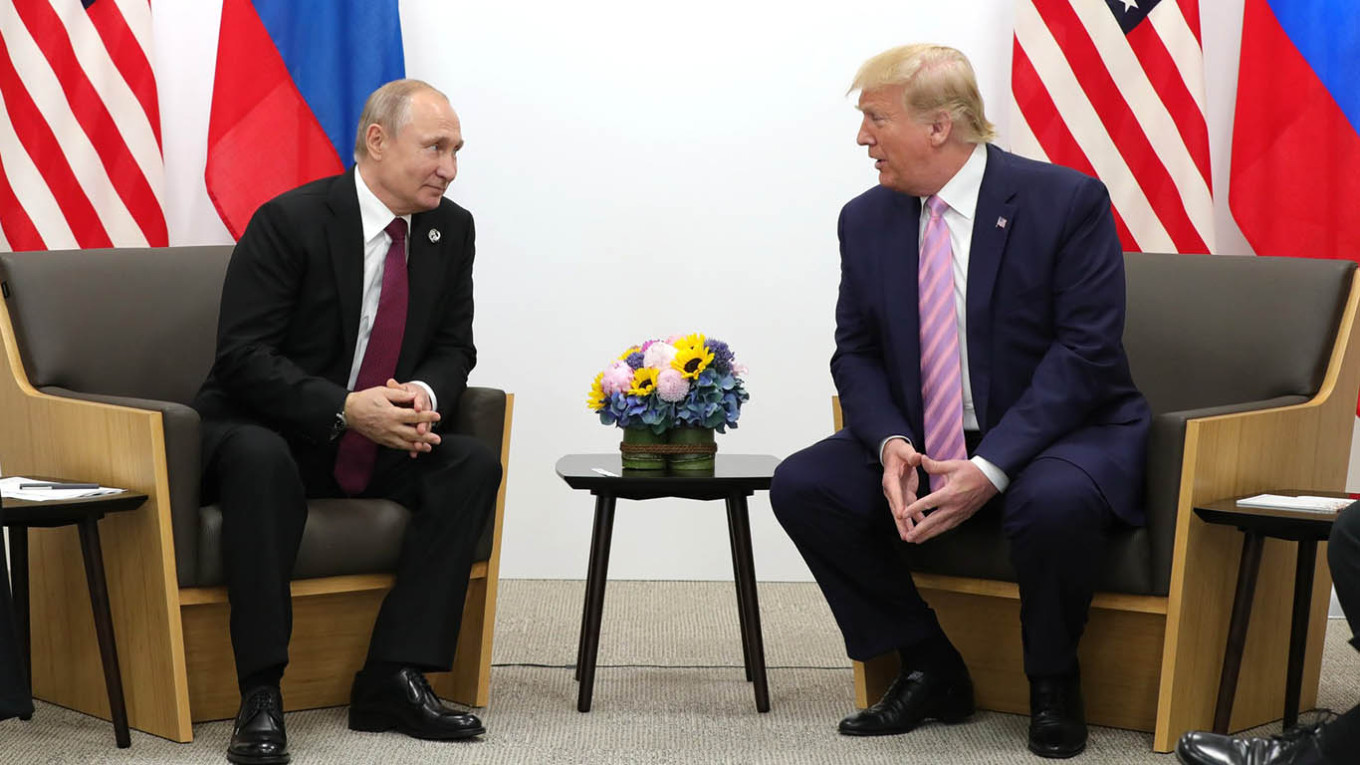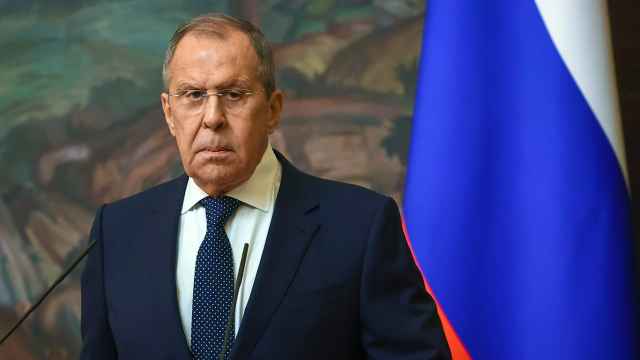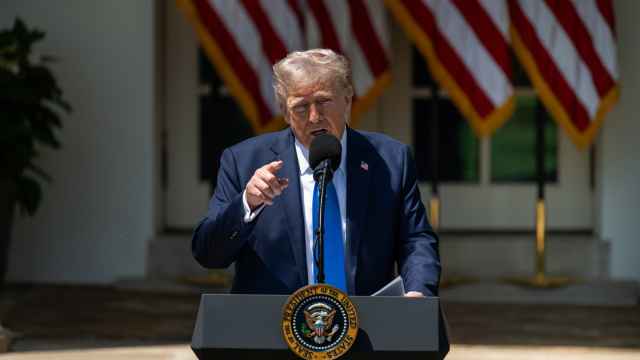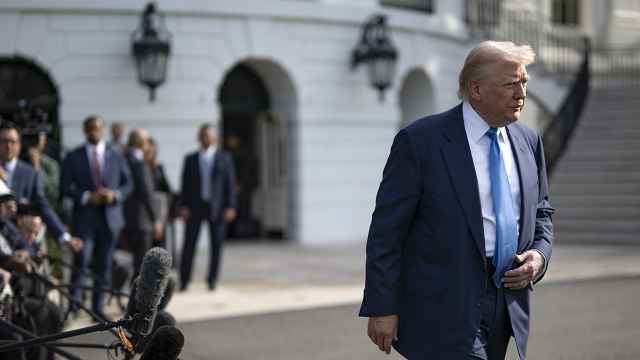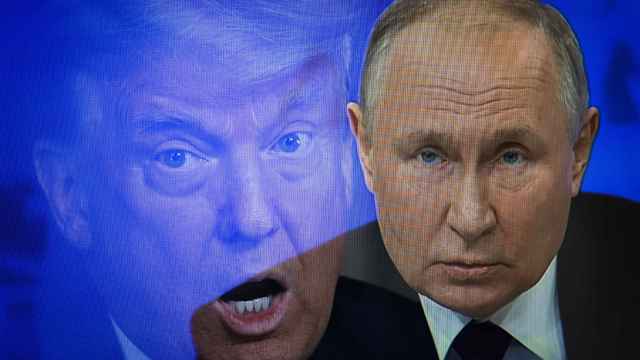Russian President Vladimir Putin and U.S. President Donald Trump are set to meet in Alaska on Friday to discuss possible steps toward ending the three-year war in Ukraine — notably excluding Kyiv from the talks.
While the world awaits the meeting, experts appear to be cautioning against placing too much hope in what it can achieve.
“At this point, we can only speculate,” Alexandra Filippenko, an independent Russian expert on American politics, told The Moscow Times.
“Expectations seem to be inflated on both ends. Some see the meeting as a disaster, while others hail it as an incredible breakthrough. The reality remains unclear — the meeting might not even happen, so it shouldn’t be dismissed either,” Filippenko said, referring to the ever-malleable relationship between the Russian and U.S. leaders.
The summit, set to take place after Trump’s ultimatum that Russia must make peace with Ukraine or face punishing new sanctions, will be held in Alaska, a former Russian territory sold to the U.S. in 1867 for $7.2 million (about $130 million today).
Kremlin foreign policy adviser Yuri Ushakov called the choice of Alaska — the closest U.S. state to Russia, separated by the Bering Strait by less than 100 kilometers at its narrowest point — “quite logical.”
“Russia and the U.S. are close neighbors, sharing a border,” Ushakov told reporters after Trump’s announcement. “It seems logical for our delegation to simply fly across the Bering Strait and for such an important and anticipated summit to take place in Alaska.”
Alaska Governor Mike Dunleavy welcomed the prospect of hosting the summit, saying that “for centuries, Alaska has been a bridge between nations.”
“Today we remain a gateway for diplomacy, commerce and security in one of the most critical regions on earth,” Dunleavy said.
While the exact location has not yet been announced, The Alaska Landmine news outlet suggested the summit might take place at Alyeska Resort, a premier ski and mountain resort in the town of Girdwood near Anchorage.
Hotel rooms at Alyeska are unavailable for booking on the days of and immediately before the scheduled summit, the outlet noted.
For many observers, the choice of Alaska signals that Trump — a former real estate mogul who famously promised to end the war on his first day in office — may be preparing to offer Putin a deal that sacrifices Ukraine’s interests and sovereignty.
“The symbolism of holding the Trump-Putin summit in Alaska is horrendous — as though designed to demonstrate that borders can change, land can be bought and sold,” said Sam Greene, professor of Russian politics at King’s College London, pointing to the occupied regions of Ukraine that Moscow demands be officially recognized as part of Russia.
Greene also noted the fringe assertion from hardline Russian nationalists that Alaska should be returned to Russia.
Beyond its symbolic value, Alaska also offers a convenient and secure route for Putin to travel. The Russian leader is wanted by the International Criminal Court on war crimes charges related to the forced deportations of Ukrainian children, but the U.S. is not a state party to the ICC.
Whether Alaska will truly serve as a “bridge between nations” remains unclear, as Ukraine, at least for now, is not expected to have a seat at the summit table.
A White House official said Trump was open to Kyiv joining talks with Putin on Friday.
President Volodymyr Zelensky has already warned that "decisions without Ukraine" would not bring peace and ruled out ceding territory to Russia.
“Ukraine is ready for real decisions that can bring peace. Any decisions that are against us, any decisions that are without Ukraine, are at the same time decisions against peace,” he said on social media.
European countries also said in a joint statement that "the path to peace in Ukraine cannot be decided without Ukraine” and that the only successful approach “combines active diplomacy, support to Ukraine and pressure on the Russian Federation to end their illegal war.”
After analyzing press leaks after last week’s meeting between Putin and U.S. special envoy Steve Witkoff in Moscow, the Institute for the Study of War (ISW) said that the only consistent element in Putin’s reported demands is for Ukraine to withdraw from unoccupied areas of the Donetsk region — a concession that would dismantle Kyiv’s main defensive lines, with no guarantee Russia would halt its offensive.
According to Pavel Podvig, a Geneva-based independent analyst on Russia’s nuclear forces, experts who say the summit won't change anything make “good points.”
“For the Kremlin, it's not about territories. It's probably not even about Ukraine. It's about recognition. This is something the U.S. might deliver,” Podvig argued.
In addition to the war in Ukraine, Putin and Trump — who last met in 2019 at the G20 summit in Japan during Trump’s first term — could also discuss other bilateral issues like trade, business deals and restoring diplomatic ties.
Arctic security and development could also be on the table, with Alaska serving as a symbolically significant choice for the talks, said Ilya Shumanov of Arctida, an NGO specializing in expert analysis and investigations on the Russian Arctic.
But for now, expert Filippenko said the lead-up to the summit echoes what former Trump adviser Steve Bannon once described as the Trump administration’s “flood the zone” approach — overwhelming the public with a torrent of information and disinformation.
“Beyond the ‘flood the zone’ tactic, what’s clear is Donald Trump’s genuine desire to bring the conflict to a swift end — not out of idealism, but driven by financial motives and a wish to focus on trade with all countries, as well as on the Asia-Pacific region and his own continent, rather than Europe,” Filippenko told The Moscow Times.
“Beyond that, it’s all just speculation.”
A Message from The Moscow Times:
Dear readers,
We are facing unprecedented challenges. Russia's Prosecutor General's Office has designated The Moscow Times as an "undesirable" organization, criminalizing our work and putting our staff at risk of prosecution. This follows our earlier unjust labeling as a "foreign agent."
These actions are direct attempts to silence independent journalism in Russia. The authorities claim our work "discredits the decisions of the Russian leadership." We see things differently: we strive to provide accurate, unbiased reporting on Russia.
We, the journalists of The Moscow Times, refuse to be silenced. But to continue our work, we need your help.
Your support, no matter how small, makes a world of difference. If you can, please support us monthly starting from just $2. It's quick to set up, and every contribution makes a significant impact.
By supporting The Moscow Times, you're defending open, independent journalism in the face of repression. Thank you for standing with us.
Remind me later.



